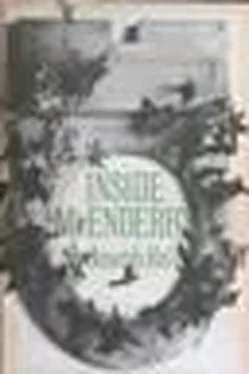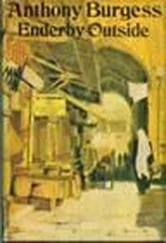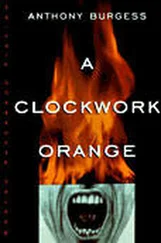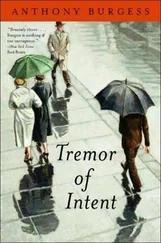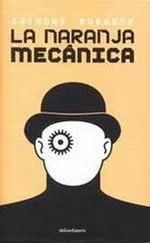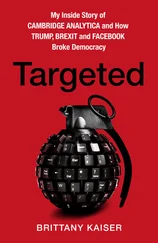I sought scent and found it in your hair;
Looked for light, and it lodged in your eyes.
So for speech: it held your breath dear;
And I met movement in your ways.
That felt like the first quatrain of a Shakespearian sonnet. It wouldn't do, of course; the sprung rhythm and muffled rhymes would strike Thelma's world as technical incompetence. He found:
You were there, and nothing was said,
For words toppled over the edge or hovered in air.
But I was suddenly aware, in the split instant,
Of the constant, in a sort of passionless frenzy:
The mad wings of motion a textbook law,
Trees, tables, the war, in a fixed relation,
Moulded by you, their primum mobile,
But that you were there really was all I knew.
He couldn't remember writing that. The reference to the war dated it within six years. The place? Probably some town with avenues, outdoor tables for drinking. Addressed to? Don't be so bloody stupid; addressed to nobody, of course; pure ideal emotion. He continued rooting, his arms deep in the bathtub. The mice scuffled to their primary home, a hole. He found half of a priceless piece of juvenilia:
You are all
Brittle crystal,
Your hands
Silver silk over steel.
Your hair harvested
Sheaves shed by summer,
Your repose the flash
Of the flesh of a river-swimmer…
Then a jagged tear. He must have been, sometime, taken short. There was nothing in the bath that would do for Thelma, even an ideal Thelma. He would have to compose something new. Stripping his lower half for poetic action, he took his seat and got down to work. Here was a real problem, that of bridging the gap, of making something that should not seem eccentric to the recipient and at the same time not completely embarrass the author. After an hour he produced the following:
Your presence shines above the fumes of fat,
Glows from the oven-door.
Lithe with the litheness of the kitchen cat,
Your image treads the floor
Ennobling the potato-peel, the lumps
Of fallen bread, the vulgar cabbage-stumps.
"Love!" cry the eggs a-whisk, and "Love!" the beef
Calls from the roasting-tin.
The beetroot blushes love. Each lettuce-leaf
That hides the heart within
Is a green spring of love. Pudding and pie
Are richly crammed with love, and so am I.
But, after those first two painful stanzas, he found it hard to stop. He was led on ruthlessly, horrified by a growing facility, a veritable logorrhoea. At the end of the ode he had emptied Arry's kitchen and filled ten closely written sheets. One point, he thought, he had very clearly established, and that was that Arry was in love.
It was the day of the London luncheon. Tremulous Enderby fell out of bed early to see snow staring through the morning dark. Shivering, he snapped every electric heater in the flat on, then made tea. Snow gawped blankly at him through all the windows, so he drew the curtains, turning raw morning into cosy muffiny toast-toe evening. Then he shaved. He had washed, fairly thoroughly, the night before the night before last. He had almost forgotten what it was like to shave with a new blade, having-for nearly a year now-used the old ones stacked up by the previous tenant on top of the bathroom cupboard. This morning he slashed cheeks, underlip, and Adam's apple: shaving-soap froth became childhood ice-cream sprinkled with raspberry vinegar. Enderby found an old poem beginning And if he did then what he'd said he'd do, and with bits of this he stanched the flow. He started to dress, putting on a new pair of socks bought at a January sale and tucking the ends of his pyjama-trousers well inside them. He had a white shirt specially laundered, he had found a striped tie-lime and mustard-in a suitcase with the name PADMORE in marking-ink on white rag attached to its lining (who was, or had been, or might be in the unrealized future, Padmore?) and had cleaned with care his one pair of brown shoes. He had also, for show and blow respectively, saved two clean handkerchiefs. He would beat these city-slickers at their own game. The suit from Arry was sober grey, the most Eliotian one in his whole wardrobe.
He was pleasantly surprised by the decent gravity of the figure that bowed from the wardrobe mirror. Urban, respectable, scholarly-a poet-banker, a poet-publisher, teeth a flashing two double octaves in the electric firelight, spectacles drinking of the bedlamp's glow. Satisfied, he went to get his breakfast-a special breakfast today, for God knew what ghastly sauced muck he might be coldly given in the great hotel. He had bought a Cornish pasty but had, coming out of the shop, slipped on an ice-patch. This had hurt him and flattened the pasty, but its edibility was hardly impaired. It was to be eaten with Branston pickle and, as an extra-special treat, washed down with Blue Mountain coffee. He felt an unwonted exultation as he prepared this viaticum, as if-after years of struggle-he had at last anived. What should he buy with the prize-money? He couldn't think what. Books? He had done reading. Clothes? Ha ha. There was nothing he really needed except more talent. Nothing in the world.
The coffee was disappointingly cool and weak. Perhaps he had not made it properly. Could he take lessons in that? Were there teachers of such things? Arry. Of course, he would ask Arry. At nine-fifteen (train at nine-fifty, ten minutes walk to station) he sat with a cigarette, hypnotized by the gash-gold-vermilion of the electric fire, waiting. He suddenly caught another memory like a flea. Far childhood. Christmas Day, 1924. Snow came down in the afternoon, transfiguring the slum street where the shop was. He had been given a magic lantern and, after dinner, he was to project slides of wild animals on to the sitting-room wall. Powered by a candle, the lantern had been fitted with a candle-a new one, its flame much too high for the lens. His Uncle Jimmy the plumber had said, "We'll have to wait till it burns down. Give us a tune, Fred." And Fred, Enderby's father, had sat at the piano and played. The rest of that dim gathering-only the stepmother bright in memory, belching away-had waited for the candle to burn down to lens-level, the coloured animals suddenly to appear on the wall.
Why, wondered Enderby now, why had nobody thought to cut the candle? Why had they all, every single one of them, agreed to wait on the candle's convenience? It was another mystery, but he wondered if it was really a mystery of a different order from this other waiting-waiting on Shakespeare's time's candle to burn down to time to dress warmly, time to leave for the station. Enderby suddenly passionately wished he could cut the whole long candle to its end-have written his poetry and have done. Then he grinned as his stomach, having slyly engineered this melancholy, plaintively subscribed to it.
Pfffrrrp. And then Brrrrrrr. But that, he realized, after surprise at his stomach's achievement of such metallic ectophony, that, he heard with annoyance, was the doorbell. So early, whoever it was, and coming so inconveniently. Enderby went to his flat-door and saw, waddling down the hallway of the house itself, his landlady, Mrs Meldrum. Well. He paid her by post. The less he saw of her the better. "If I can trouble you for a moment, Mr E," she said. She was a woman of sixty, with pinched East Midland vowels. Her face was modelled on that of a tired but cheerful crescent moon in a bedtime-malted-milk-drink advertisement that even Enderby had seen often: Punch-nose meeting cusp-chin, but no jolly Punch plumpness. She had a full set of Tenniel-teeth of the colour of small chips of dirty ice, and these she showed to Enderby now as to a mirror. Enderby said:
"I've got to go up to town." He thrilled gently, saying that, a busy man of affairs.
Читать дальше
